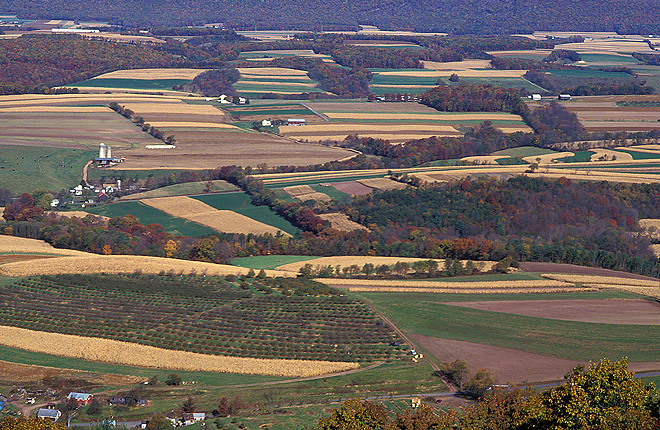Forum: Transforming Agriculture with LTAR
The world of agriculture is constantly changing. We’ve come a long way from the single farmer providing food solely for his family. Today we have a global food economy that feeds billions of people. Faced with meeting the demand for more safe and plentiful food while protecting watersheds, biodiversity, and pollinator health, agriculture must transform itself.
We can no longer count on a “business-as-usual” or a solely commodity-driven system to increase production. We need a new approach that is climate smart and sustainable. Production systems must be able to simultaneously meet our need for food, feed, and fiber; contribute to biofuel; enhance environmental quality and the resources base; sustain the economic viability of producers; and enhance the quality of life for farmers, farm workers, and society as a whole.
Transforming agriculture requires a long-term perspective and a greater understanding of the complex interactions of the biological, chemical, and physical factors and processes of agroecosystem landscapes.
To address these challenges, the Agricultural Research Service (ARS) created the Long-Term Agroecosystem Research (LTAR) network in 2011. As the U.S. Department of Agriculture’s primary intramural agricultural research agency, ARS had significant relevant infrastructure already in place. The network consists of 18 premier long-term research sites across the United States. Most sites are led by scientists at ARS research locations, but some are led by researchers at U.S. universities and nonprofit organizations.
When created, LTAR was seen as an agricultural counterpart to existing natural ecosystem-focused networks, such as the Long-Term Ecological Research and the National Ecological Observatory Network. However, LTAR’s mission is different, as the goal is to both assess and enable sustainable production systems under changing environmental, technological, and policy conditions. The focus on enabling producers to create sustainable production systems stems directly from ARS’s customer-focused research mission.
As with other geographically dispersed research networks, LTAR features a series of common measurements at multiple locations, discipline-focused working groups, and a data-management system. A key difference, however, is that LTAR uses a “common experiment” that compares “business-as-usual” (existing) production systems with experimental “aspirational” production systems that incorporate the latest innovations from research.
LTAR researchers study all aspects of production systems—crop genetics (G), environment (E), and management (M)—and their interactions (GxExM). This research approach is welcomed by producers because it mirrors how they see their production systems when planning and solving problems.
This issue of AgResearch magazine takes a closer look at 4 of the 18 LTAR sites:
Long-term data collection at all LTAR sites is continually motivated by research questions about the sustainability of our production systems and landscapes. Answering these questions will enable us to build future systems that increase production, assure producer economic viability, and protect our nation’s natural resources.
Charles L. Walthall
ARS National Program Leader
Natural Resources and Sustainable Agricultural Systems
Beltsville, Maryland
Key Facts
- ARS created the Long-Term Agroecosystem Research (LTAR) network in 2011.
- The LTAR network has 18 research sites that do long-term studies.
- LTAR experiments compare existing systems to new systems.
- LTAR research aims to enable producers to create sustainable production systems.
Full Story







